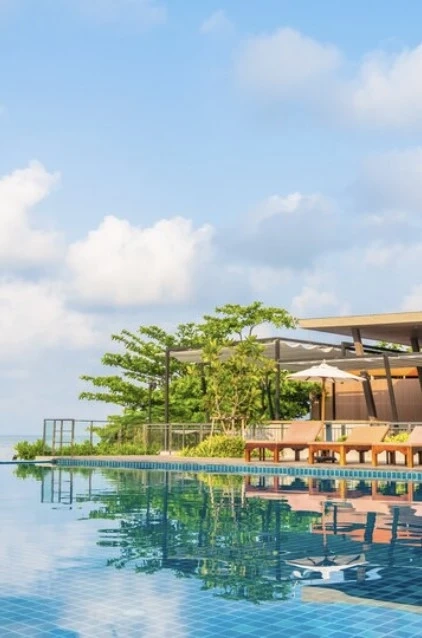A home pool is a source of enjoyment, relaxation, and fitness. However, it can also pose safety risks if not properly maintained and secured. In Victoria, Australia, strict pool safety regulations and inspections are in place to protect residents and visitors.
The Role of a Pool Safety Inspector:A pool safety inspector plays a critical role in ensuring that home pools meet safety standards. These professionals are trained and authorized by the relevant authorities to inspect residential pools and ensure they comply with safety regulations. Here are some key aspects of their role:
Inspections: Pool safety inspectors conduct thorough examinations of home pools, assessing various safety aspects, such as pool fencing, gates, latches, water clarity, and the overall condition of the pool area.
Report Generation: After an inspection, the pool safety inspector generates a detailed report outlining the findings. This report serves as a crucial document for both pool owners and regulatory authorities.
Recommendations: If any safety issues are identified during the inspection, the inspector will make recommendations for necessary improvements or repairs to bring the pool into compliance.
Compliance Certification If the pool meets all safety requirements, the inspector will issue a compliance certificate. This certificate is often required for pool owners to demonstrate that their pool adheres to safety standards.
The Importance of Pool Safety Compliance:Compliance with pool safety regulations is essential for various reasons, primarily centered around the well-being of those who use or are around the pool:
Preventing Accidents: Compliance ensures that the pool area is as safe as possible, reducing the risk of accidents, especially involving children and non-swimmers.
Legal Requirements: In many regions, including Victoria, there are legal obligations for pool owners to maintain a safe and compliant pool. Failure to do so can result in fines and penalties.
Peace of Mind: Compliant pools offer peace of mind to pool owners and their guests, knowing that they can enjoy the pool without unnecessary risks.
Property Value: A pool that adheres to safety regulations can enhance the overall value of a property, making it more appealing to potential buyers or renters.
Community Safety: Pool safety is not only an individual concern but also a matter of community safety. Non-compliant pools can pose risks to neighbors and the public.
Victorian Pool Fence Regulations:Victoria, like other Australian states, has specific regulations governing pool safety compliances particularly in the context of pool fences. These regulations are designed to reduce the risk of drowning incidents and maintain high safety standards for all home pools.
Key aspects of Victorian pool fence regulations include:
Height: Pool fences must be at least 1.2 meters (120 cm) in height, providing an effective barrier to prevent unauthorized access.
Materials: Fencing materials must be durable and not easily climbable. Common choices include steel, aluminum, or glass.
Climbable Objects: There should be no objects, trees, or structures within 900 mm of the pool fence, as they could be used for climbing.
Gates: Self-closing and self-latching gates are mandatory. They should open away from the pool and have latches positioned at least 1.5 meters above ground level to prevent young children from accessing them.
Clear Zones: A clear zone extending at least 300 mm from the inside of the pool fence is necessary to prevent children from getting too close to the pool's edge.
Non-Climbable Zone: A non-climbable zone extending 900 mm from the outside of the pool fence ensures that no objects or structures are present to facilitate climbing.
Compliance Inspections: As previously mentioned, periodic compliance inspections by authorized pool safety inspectors are required. These inspections ensure that the pool area remains safe and compliant.
Barrier Maintenance: Pool owners are responsible for maintaining their pool barriers in good condition, ensuring that gates, fences, and latches function correctly.
Exemptions: Some specific exemptions may apply for certain pools, such as pools in high-rise apartment buildings. However, these exceptions typically require alternative safety measures.
Ensuring the safety and compliance of home pools in Victoria is a matter of paramount importance. Pool safety inspectors play a vital role in conducting inspections, issuing compliance certificates, and guiding pool owners in maintaining safe pool areas. Adherence to Victorian pool fence regulations is essential to prevent accidents, meet legal requirements, and provide peace of mind to pool owners and their communities. By prioritizing safety and compliance, homeowners can continue to enjoy the many benefits of having a pool while keeping their loved ones and visitors safe.


